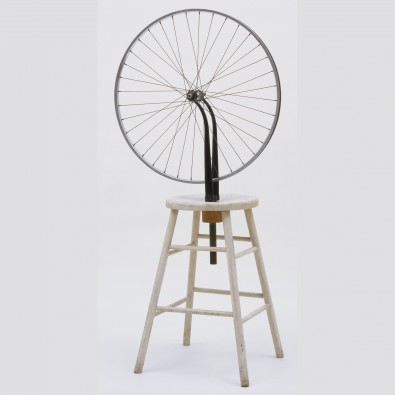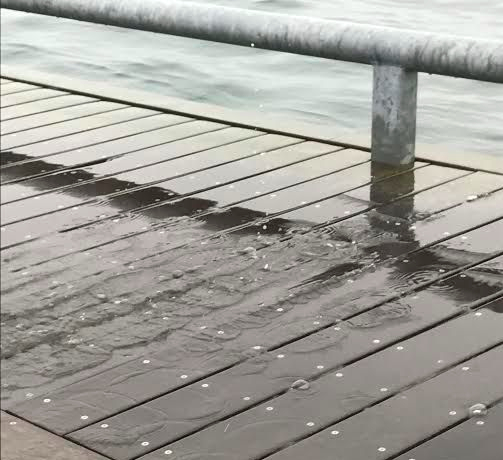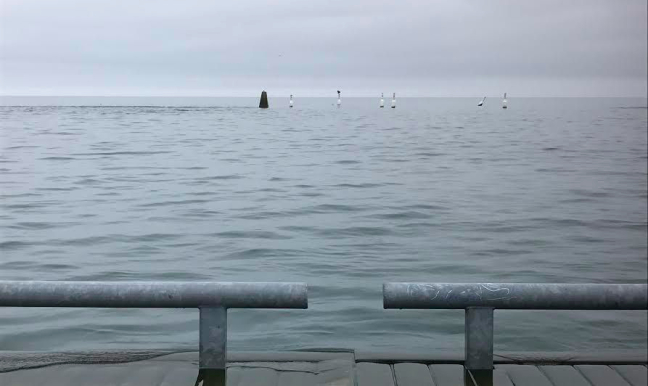A la pointe de la découverte, de l’instant où pour les premiers navigateurs une nouvelle terre fut en vue à celui où ils mirent le pied sur la côte, de l’instant où tel savant put se convaincre qu’il venait d’être témoin d’un phénomène jusqu’à lui inconnu à celui où il commença à mesurer la portée de son observation, tout sentiment de durée aboli dans l’enivrement de la chance, un très fin pinceau de feu dégage ou parfait comme rien autre le sens de la vie. - André Breton, 1934
(At the point of discovery — from the moment when a new land comes into the field of vision for a group of explorers to that when their feet first touch the shore — from the moment when a certain savant convinces herself that she’s observed a previously unknown phenomenon to that when she begins to measure her observation’s significance — the intoxication of luck abolishing all notions of time, a very thin paintbrush* unlocks, or perfects, like nothing else, the meaning of life.)
I have a few blog post ideas brewing but had lost my weekly writing momentum in the process of moving from New York City to Toronto for my new role at integrate.ai. It’s incredible how quickly a habit atrophies: the little monkey procrastinator** in my mind has found many reasons to dissuade me from writing these past two weeks. I already feel my mind intaking the world differently, without the same synthetic gumption. Anxiety creeps in. Enter Act of Will stage left, sauntering or skipping or prancing or curtseying or however you’d like to imagine her. A bias towards action, yes, yes indeed, and all those little procrastination monkeys will dissipate like tomorrow’s bug bites, smeared with pink calamine lotion bought on sale at Shoppers Drug Mart.
But what to write about? That is (always) the question.
Enter Associative Memory stage right. It’s 8:22 am. I’m on a run. Fog partially conceals CN tower. A swans stretches her neck to bite little nearby ducks as the lady with her ragged curly hair — your hair at 60 dear Kathryn — chuckles in delight, arms akimbo and crumbs askance, by the docks on the shore. The Asian rowers don rainbow windbreakers, lined up in a row like the refracted waves of a prism (seriously!). What do I write about? Am I ready to write about quantum computing and Georg Cantor (god not yet!), about why so many people reject consequentialist ethics for AI (closer, and Weber must be able to help), about the talk I recently gave defining AI, ML, Deep Learning, and NLP (I could do this today but the little monkey is still too powerful at the moment), about the pesky health issues I’m struggling with at the moment (too personal for prime time, and I’ll simply never be that kind of blogger)? About the move? About the massive changes in my life? About how emotionally charged it can be to start again, to start again how many times, to reinvent myself again, in this lifestyle I can’t help but adopt as I can’t help but be the self I reinforce through my choices, year after year, choices, I hope, oriented to further the exploration into the meaning of life?
Associative Memory got a bit sidetracked by the ever loquacious Stream of Consciousness. Please do return!
Take 2.
Enter Associative Memory stage right. It’s 8:22 am. I’m on a run. Fog partially conceals CN tower. Searching for something to write about. Well, what about drawing upon the objet trouvé technique the ever-inspiring Barbara Maria Stafford taught us in Art History 101 at the University of Chicago? According to Wikipedia, objet trouvé refers to “art created from undisguised, but often modified, objects or products that are not normally considered materials from which art is made, often because they already have a non-art function.”*** Think Marcel Duchamp’s ready-made objects, which I featured in a previous post and will feature again here.

But that’s not how I remember it. Stafford presented the objet trouvé as a psychological technique to open our attention to the world around us, helping our minds cast wide, porous, technicolor nets to catch impressions we’d otherwise miss when the wardens of the pre-frontal cortex confine our mental energy into the prisons cells of goals and tasks, confine our handmaidens under the iron-clad chastity belt of action. (Enter Laertes stage left, peaking through only to be quickly pulled back by Estragon’s cane.)
You see, moving to a new place, having all these hours alone, opens the world anew to meaning. We become explorers having just discovered a new land and wait suspended in the moment before our feet graze the unknown shore. The meaning of connections left behind simmers poignantly to tears, tears shed alone, settling into gratitude for time past and time to come. Forever Young coming on the radio surreptitiously in the car. Grandpa reading it like a poem in his 80s, his wisdom fierce and bold in his unrelenting kindness. His buoyancy. His optimism. His example.
Take 3.
Enter Associative Memory stage right. It’s 8:22 am. I’m on a run. Fog partially conceals CN tower. What do I see? What does the opened net of my consciousness catch? This.

It was more a sound than a sight. The repetition of the moving tide, always already**** there, Earth’s steady heartbeat in its quantum entanglement with the moon. The water rising and falling, lapping the shores with grace and ease under the foggy morning sky. Stammering, after all, being the native eloquence of fog people. The sodden sultriness of Egdon Heath alive in every passing wave, Eustacia’s imagination too large and bold for this world, a destroyer of men like Nataraja in her eternal dance.
Next, my mind saw this (as featured above):

And, coincidentally, the woman on the France Culture podcast I was listening to as I ran uttered the phrase épuisée par le vide.
Exhausted by nothingness. The timing could not have been more perfect.
It’s in these moments of loneliness and transition that very thin paintbrushes unlock the meaning of life. Our attention freed from the shackles of associations and time, left alone to wander labyrinths of impressions, passive, vulnerable, seeking. The only goals to be as kind as possible to others, to accept without judgment, to watch as the story unfolds.
* I don’t know how to translate pinceau de feu, so decided to go with just paintbrush. Welcome a more accurate translation!
** Hat tip to Tim Urban’s hilarious TED talk. And also, etymology lovers will love that cras means tomorrow in Latin, so procrastinate is the act of deferring to tomorrow. And also, hat tip to David Foster Wallace (somewhat followed by Michael Chabon, just to a much lesser degree) for inspiring me to put random thoughts that interrupt me mid sentence into blog post footnotes.
*** Hyperlinks in the quotation are the original.
**** If you haven’t read Heidegger and his followers, this phrase won’t be as familiar and potentially annoying to you as it is to me. Continental philosophers use it to refer to what Sellars would call the “myth of the given,” the phenomenological context we cannot help but be born into, because we use language that our parents and those around us have used before and this language shapes how we see what’s around us and we have to do a lot of work to get out of it and eat the world raw.
One thought on “Objet Trouvé”